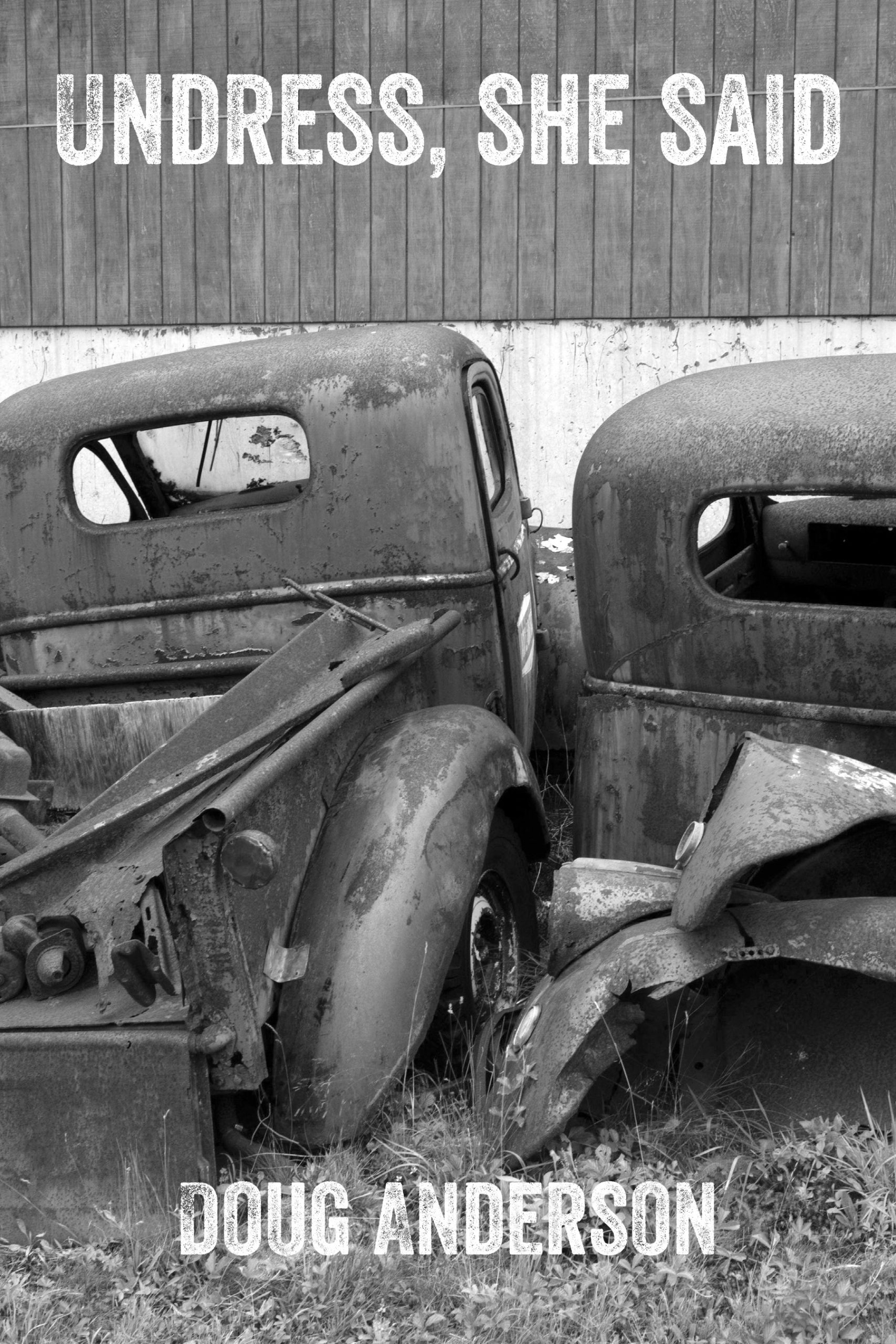
paper • 116 pages • $17.95
ISBN: 978-1-954245-24-2
eISBN: 978-1-954245-35-8
September 2022 • Poetry
In Doug Anderson’s newest collection, Undress, She Said, we accompany a speaker undaunted by the complex reckonings of history, evolving relationships, and an aging body, a speaker that, besieged by a storm, resolves to “set out into it, the wind / playing the rigging like a harp.” Over and over in these pages, Anderson makes music of the gales and rain and turbulent sea. These poems voyage from the subtle violences of a religious upbringing to complex remembrances of time served in the Vietnam War to contemporary emergencies of real and political plagues. Yet, no matter the subject, compassion rudders these lyrics as they turn always and at last to myriad beloveds — the enigmatic Angel of Death, literary and mythological influences, kind strangers, the constantly elusive and elusively constant moon. These words reach out to its readers the way the poet addresses frozen joy from the confines of winter: “Red berry trapped in ice, / let me touch you.”
“Wings,” from Undress, She Said
Been so long since I’ve been loved, even touched,
I told her, with no self-pity in my voice, just fact,
and she reached over and took my hand
in both of hers and felt deftly its several bones
and worn gristle that held them in place
as if she were holding a bird that hit a glass door,
to feel it come back to life in her hands.
In this time of plague and an injured planet, we need poems that play for the highest stakes. Whether he’s writing about love, war, art, or the myths we sell ourselves, Doug Anderson takes on the whole catastrophe, and does so with passion and compassion, tenderness and rage. Simultaneously death-conscious and wide-open-hearted, Undress, She Said is a book that could only have been written by a man who’s been alive for a long time. Plainspoken, precise, frequently surprising, and unabashedly intimate, these poems are that rare thing: necessary to our understanding of ourselves and our world.
It’s the tenderness of Doug Anderson’s magnificent, wildly imaginative and humane poems that’s so startling, so inured have some of us become to the insults of the Late Incorporated Anthropocene. The great gift of his poems is to shock my heart out of an expectation of despair. Anderson writes without a trace of self-pity about becoming old, and of needing to explore the texture of death. This book doesn’t present becoming peaceful in old age as a virtue. Instead, it continues to believe in ‘us’ enough to express fury about the ways we’re inhuman toward others and ourselves. It thinks we can do better. Full of wit and music, the language here crackles, coruscates with light and intensity, suffused with gratitude for the beauties of the phenomenal world and for love even in its distressing disguise as death. Undress, She Said, echoes with voices….A person a thousand years ago would have felt the truth of these poems, or a thousand years from now, so rooted they are in the story, the work, of being human. On the field of battle between judgement and forgiveness, this book renders the deep service of recalling ourselves to ourselves.